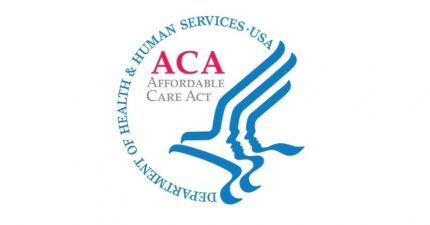News
If We Require Employees To Arrive Ten Minutes Early To Prepare For The Start Of Their Shift, Do We Have To Pay Them For This Extra Time?
Q: If we require employees to arrive ten minutes early to prepare for the start of their shift, do we have to pay them for this extra time? A: Yes. Under the Fair Labor Standards Act (and likely state law as well), you must pay employees for all hours worked. This includes the time they are required to be on your premises, even if they haven’t begun their “regular” duties. Preparing for work—if it must be done at work—will be considered part of the employee’s continuous workday. You are certainly welcome to have an attendance and tardiness policy that requires employees to be at their desk or assigned location and ready to work exactly when their shift begins, and to …
Restaurant Safety 101
Several of my clients are restaurants and in today’s blog post I will attempt to outline common safety concerns or OSHA violations I encounter during a typical safety audit. They are all easy fixes that require little or no cost to the client to implement. Fire Prevention 1. Smoking is only allowed in designated exterior smoking areas. 2. Empty grease traps to prevent accumulation of grease and oily residues on surface. 3. Keep combustible materials a safe distance from cooking equipment. 4. Package and remove garbage and trash frequently. 5. Clean ducts and flues regularly. 6. Check electrical cords for wear and tear regularly. 7. Only trained and authorized employees are allowed to use a portable fire extinguisher in the …
Employee Says They Can No Longer Work Weekends?
Q: We hired an employee about a month ago, and at the time of hire they said they could work weekends. Now they say that they can’t work weekends. What should we do? A: It depends. In general, if an employee is unable or unwilling to work the hours they had originally agreed to work, and those hours are required to meet business needs, you can discipline the employee up to and including termination. However, if the employee’s inability to work these hours is related to a protected reason (e.g., medical leave), you’ll want to have a conversation about accommodations instead of discipline. Whether you opt to discipline or terminate the employee, or work around their schedule, keep in mind …
Fall Protection & Safety Tips
Fall protection and safety is a major concern at the workplace. In fact, OSHA cites injuries from falls as one of its top ten worksite injuries. Falls and falling objects can result from unstable working surfaces, ladders that are not safely positioned and misuse of fall protection. Workers are subject to falls or dangers of falling if sides and edges, floor holes and wall openings are not protected. Any time you are working at a height of six feet or more you must be protected. Unprotected Sides, Wall Openings and Floor Holes: Unprotected sides and edges, wall openings or floor holes can be very common. If these sides are not protected, injuries from falls or falling objects may result. Use …
Question About: Overtime Pay At 2 Different Locations
Q: We have an hourly employee who will be working at two different locations and under two titles, 25 hours at one location and 25 hours at the other. Will he need to be paid overtime? A: Yes. Titles, job duties, and locations are irrelevant—focus only on the total number of hours worked by the individual for your organization. Under the Fair Labor Standards Act, non-exempt employees must be paid overtime for all hours worked over 40 in a workweek for a single employer. In some cases, an employee working a schedule like this for two separate companies may even be entitled to overtime, assuming the organizations have the same owners and management or otherwise qualify as joint employers. Failure to …
Understanding TIP Credits, Pooling, Sharing
March 23, 2018 saw the signing by President Trump of a new bill into law that addressed multiple spending areas, one of which was “a plan to scale back the administration’s proposed tip pooling regulation from late 2017.” The bill did rescind the 2011 regulation that prohibited tipped employees from sharing with non-tipped employees, but only when an employer pays his/her tipped employees full minimum wage. Tipped employees who are paid at least the prevailing minimum wage can now legally share their tips with non-tipped employees. The bill also stipulates that employers, managers, supervisors, etc., cannot collect or retain tips earned by employees.2 To better understand Tip Credits, Tip Pooling and Tip Sharing, each is discussed below, along with a …
Is the ACA Going Away?
Now That We’ve Caught Our Breath….Is the ACA Going Away? Only time will tell if the Affordable Care Act (ACA) will be long-lived, changed into something different, or ceases to be altogether. Perhaps the reality that employers are now starting to see fines for non-compliance will stir up a few healthy debates. What we do know for certain, though, is that changes to this 2010 Act have already arrived. The first change began a year ago, on President Trump’s first day in office.1 On January 20, 2017, President Donald J. Trump signed an Executive Order to try to mitigate the fiscal burden the ACA puts on the economy, by directing the various agencies to, in effect, hinder the massive regulatory …
Minimize Exposure To Hazards With Personal Protective Equipment
NO MATTER WHAT YOUR JOB: engineering controls are the first line of defense against occupational injury and fatalities. However, these methods do not always offer the maximum protection for workers, so personal protective equipment (PPE) is crucial. Become familiar with the types of PPE you may be required to use and why it is essential to your health and safety. Often times employees don’t wear their safety equipment because it’s a nuisance to put on or because it’s bulky and uncomfortable. A poorly fitted piece of PPE can cause headache or pain, and if it does, see your supervisor immediately to have it adjusted or refitted. But most of the time it’s just a matter of getting used to wearing …
CEOHR, INC / FL License Number GL265
5104 North Lockwood Ridge Rd Suite 201 Sarasota, FL 34234 / P: 941-907-4520 / F: 941-907-9617
Audited Financials by HBK for your peace of mind! – Payroll, HR, Workers’ Compensation, & Group Benefits – Go Direct & Save up to 35%!
© 2022 CEOHR, Inc.
As a NAPEO member we’ve grown from 1 State to 48 States in less than 5 years!







